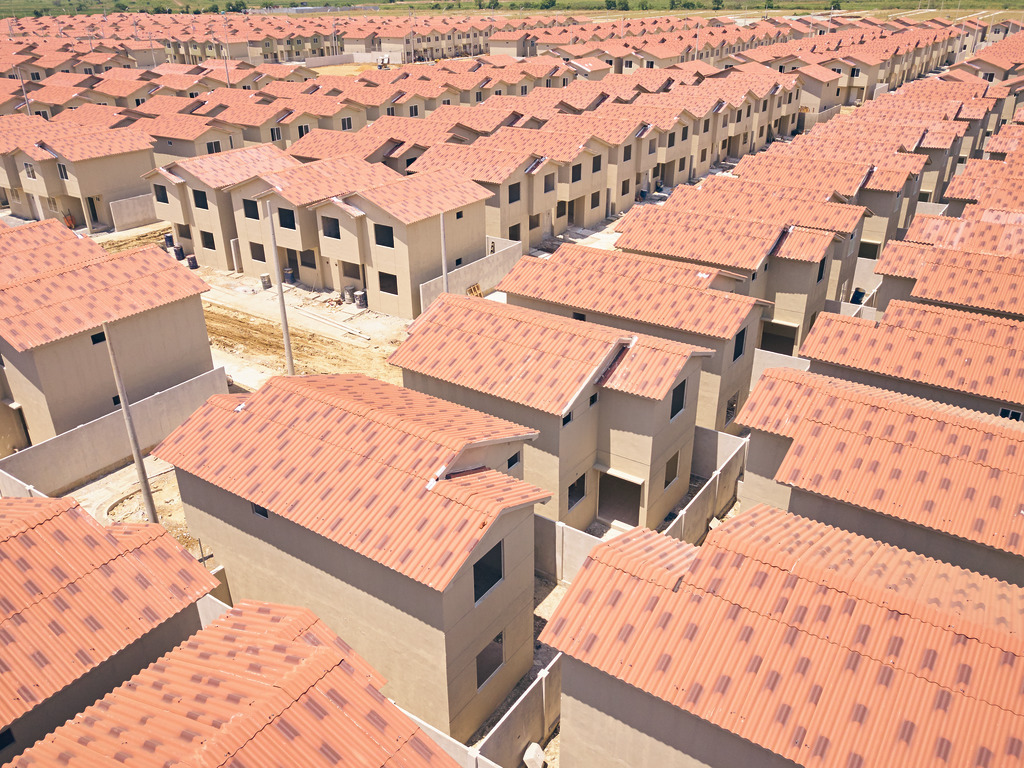The inventory of homes for sale is startlingly low. The pandemic is part of the reason, but it’s not the whole story.
Much of the housing market has gone missing. On suburban streets and in many urban neighborhoods, across large and midsize metro areas, many homes that would have typically come up for sale over the past year never did. Even in cities with a pandemic glut of empty apartments and falling rents, it has become incredibly hard to buy a home.
Today, if you’re looking for one, you’re likely to see only about half as many homes for sale as were available last winter, according to data from Altos Research, a firm that tracks the market nationwide. That’s a record-shattering decline in inventory, following years of steady erosion.
And it’s one flashing sign that the housing market — which can defy basic laws of economics even in normal times — is acting very, very strangely.
The number of available homes has fallen steeply in metros across the country
This picture is a product of the pandemic, but also of the years leading up to it. And if half of what is happening in the for-sale market now seems straightforward — historically low interest rates and a pandemic desire for more space are driving demand — the other half is more complicated.
“The supply side is really tricky,” said Benjamin Keys, an economist at the Wharton Business School at the University of Pennsylvania. “Who wants to sell a house in the middle of a pandemic? That’s what I keep coming back to. Is this a time you want to open your house up to people walking through it? No, of course not.”
A majority of homeowners in America are baby boomers — a group at heightened risk from the coronavirus. If many of them have been reluctant to move out and downsize over the past year, that makes it hard for other families behind them to move in and upgrade.
There are lots of steps along the “property ladder,” as Professor Keys put it, that are hard to imagine people taking mid-pandemic: Who would move into an assisted living facility or nursing home right now (freeing up a longtime family home)? Who would commit to a “forever home” (freeing up their starter house) when it’s unclear what remote work will look like in six months?
This reluctance can take on a life of its own in a tight market, said Ralph McLaughlin, the chief economist at Haus, a housing finance start-up. When there aren’t a lot of options out there to buy, would-be sellers get skittish about finding their own next home and back out of the market themselves.
“Every additional home that gets pulled off the market incentivizes someone else to not sell their house,” Mr. McLaughlin said. “That’s a self-reinforcing cycle.”
There is another factor particular to the pandemic: At the peak, more than four million homeowners with government-backed loans were in mortgage forbearance during the pandemic (about 2.6 million still are). While that government policy, recently extended through June, has been a lifeline for many families who’ve lost income, it has also meant that some homes that most likely would have come on the market over the past year, either through foreclosure or a forced sale, did not.
Add all of this up, and for every tale of someone who ran off and bought in the suburbs or paid all-cash sight unseen in some far-flung town, the larger story of the pandemic is this: Americans have been staying put.
That reality has collided with other forces that have been building since the housing crash. Even before the pandemic, real estate agents and economists were fretting about a shortage of inventory, which had been trending downward since the housing bust.
For more than a decade, less housing has been built relative to historical averages. The housing crash decimated the home building industry and pushed many construction workers into other jobs. Local building restrictions and neighbor objections have slowed new construction. President Trump’s strict immigration policies further restricted the labor supply in the industry, and his tariffs pushed up the price of building materials.
But newly built homes are just what a tight housing market needs.
“This is the reason why home building is so critical,” said Lawrence Yun, the chief economist for the National Association of Realtors. When a brand-new home comes on the market, no one has to move out (and elsewhere) to free it up. “Home building is an empty home. They’re just bringing empty homes to the market.”
The last decade has also been a period of relatively low interest rates. That incentivized many homeowners to stay in their homes longer than they would have in the past, clinging to cheap mortgages. The low rates also encouraged many homeowners who bought a new home not to sell their previous one, but to treat it as an investment property instead.




